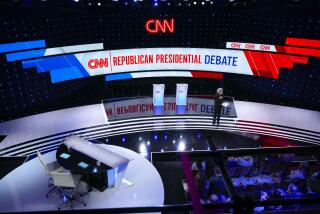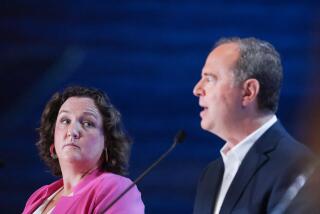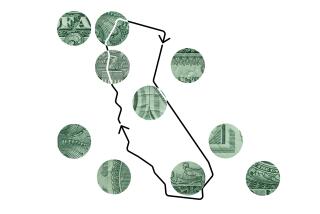Paying for Obama’s party
Getting elected president costs a lot of money, and so does being inaugurated.
In 2009, President Obama’s inaugural committee spent $45 million to kick off his first term. Even with scaled-back festivities (two balls instead of 10), this year’s inauguration will still cost tens of millions. And that money must be raised in much the same way campaigns raise funds, with requests to supporters.
Those who ante up include both corporations and well-heeled individuals. Do they expect something in return beyond the thrill of attending? Possibly, which is why inauguration funding should be as transparent as the campaigns themselves. And this year, it’s not.
After Obama’s first election, the Presidential Inaugural Committee voluntarily provided full information about its donors — name, address, city, ZIP Code (nine digit!), occupation, employer — and, importantly, the amounts that they contributed. Information began flowing in mid-December and was frequently updated.
This year? Late on Friday afternoon, Jan. 4, after nudging from our staff and others, and again last week, the committee released a far less helpful list: just names of donors — no occupations or geographical information or the amount of the donation. Without the contextual details about donors, it’s hard to tell, for instance, whether the Samuel Jackson who’s on the roster is that Samuel Jackson or some other guy named Sam.
We should note here that the Federal Election Commission requires the committee to reveal complete information, but only 90 days after the inauguration. That’s much worse than the disclosure deadlines for campaign committees in an election year.
And Obama has raised the stakes this time. In 2009, he capped donations at $50,000 per donor. This time, there is no cap, and donors have been solicited to give $1 million in exchange for close-up seats at the ceremony, tickets to balls and the like.
The president has chosen not to accept contributions from PACs and lobbyists, but this year, in another departure from four years ago, he is accepting corporate donations. Even more than individual gifts, corporate donations raise the specter of an expectation of something in return because corporations rarely do anything out of sheer altruism. So far the list contains just eight corporate names, but we don’t know anything about what they gave. Did Microsoft, one of the contributors, give the committee a few copies of Windows 8 or $8 million? There’s no way to know.
How does Obama’s policy stack up against those of his predecessors? In 1993, Bill Clinton disclosed many of his donors’ names before the swearing-in, but the amounts they gave weren’t revealed until three years later. In the interim, some donors had been invited to state dinners; one was made the head of an agency that insured securities investors. Another big inaugural donor, Occidental Petroleum, which was facing an Energy Department price-fixing case, reached a settlement with the government after Clinton took office. For his second inauguration, in 1997, Clinton limited inaugural donations to $100 and promised full disclosure by March 31.
George W. Bush went further in the direction of transparency in one respect: He voluntarily disclosed his donors, their home cities and the amounts they gave before the inauguration. Bush’s second inaugural was the first to be subject to the law requiring full disclosure within 90 days of taking the oath of office, but he did far better on the timing. Contributions were limited to $100,000 in 2001 and to $250,000 in 2005, though some corporations got around the limits by giving through subsidiaries.
Obama’s policy in 2009 bested those of all recent occupants of the Oval Office and went way beyond the law’s requirements. It appeared he’d set a new precedent for higher standards in transparency.
That makes the backsliding this year especially disheartening. In fact, by comparison, this year’s process feels like a snub.
There’s still time to right this wrong; Obama should disclose all information before the inauguration. Even better, Congress should pass a law requiring more timely disclosure, plus set limits on the size of the donations and who’s allowed to give, just as campaign finance laws do. That would avoid the current parade of policies — and their accompanying gaps — that differ with each inaugural.
Sheila Krumholz is executive director of the Center for Responsive Politics.
More to Read
A cure for the common opinion
Get thought-provoking perspectives with our weekly newsletter.
You may occasionally receive promotional content from the Los Angeles Times.






